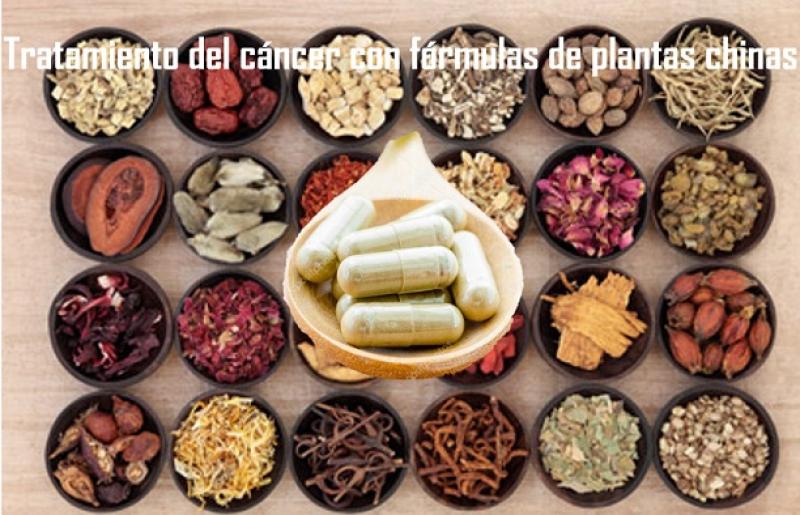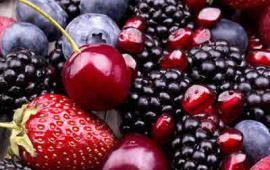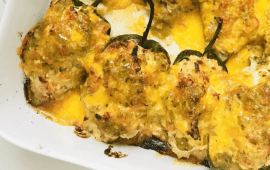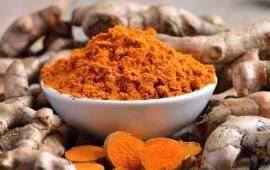In the natural and complementary treatment of cancer, the objective of integrative treatment with Chinese Herbs is focused on trying to increase survival and improve the quality of life of cancer patients. Chinese medicine can help conventional treatment - radiotherapy and chemotherapy - by modifying the biological response and, in turn, controlling the symptoms derived from the disease itself and the side effects of conventional treatment.
In recent years, interest has grown in the effectiveness of Chinese Herbs Formula in the Integrative treatment of cancer, and studies are proliferating that attempt to demonstrate its effectiveness.
With regard to the use of herbs in the treatment of cancer, it is worth pointing out that there are currently powerful cytotoxic agents used in chemotherapy that come from plants and that have proven their effectiveness in controlling tumor growth. Among them we can find vinca alkaloids (Vincristine, Vinblastine) extracted from the vinca rosea plant (Catharanthus rosea). Taxanes (paclitaxel and docetaxel) are produced from the bark of the Pacific yew tree (Taxus). Etoposide is derived from the may apple or "American mandrake."
Although cytotoxic agents are very useful in controlling tumor growth, they are not ideal for treating cancer, either because of their toxic side effects or because of the development of resistance. It has been necessary to study other mechanisms for controlling tumor growth, such as preventing resistance to the chemotherapeutic agent, inducing apoptosis, blocking tumor messenger proteins, inhibiting angiogenesis, and increasing immunity.
In this regard, we have studies with Chinese plants that show:
- Chuanxiong Rhizoma, Radix Stephanie tetrandrae and Mylabris Phalarate Pallus may have a preventive effect on resistance to chemotherapy
- Radix Miltiorrhizae nd Radix Trichosanthis have proven their apoptosis-inducing action in laboratory studies of cancer cell lines.
- Radix Astragallus, Radix Angelica sinensis and Solani Nigri have demonstrated their ability to reduce the division of cancer cells through their action blocking messenger cytokines.
- Herba Scutellariae Barbatae and Rhizoma Paridis have demonstrated their antiangiogenic properties
References
- Wang, X., Wang, S., Zhang, Q., Liu, M., Li, H., Liu, Y. ... Xiang, J. (2010). Inhibition of tetramethylpyrazine on P-gp, MRP2, MRP3 and MRP5 in multidrug resistant human hepatocellular carcinoma cells. Oncology Reports, 23, 211-215.
- SunYF, Wink M (2014) Tetrandrine and fangchinoline, bisbenzylisoquinoline alkaloids from Stephania tetrandra can reverse multidrug resistance by inhibiting P-glycoprotein activity in multidrug resistant human cancer cells. Phytomedicine 21: 1110-1119.
- Lee, Ya-Chun, Lee, Liang-Ming, Yang, Chih-Hsin. (2012). Norcantharidin suppresses cell growth and migration with enhanced anticancer activity of gefitinib and cisplatin in human non-small cell lung cancer cells. Oncology reports. 29. 10.3892/or.2012.2118.
- Ma, H. et al. (2013). Novel microemulsion of tanshinone IIA, isolated from Salvia miltiorrhiza Bunge, exerts anticancer activity through inducing apoptosis in hepatoma cells. Am. J. Chin. Med. 41: 197–210.
- Chuanhua Cao, Huixiong Qi, Fang Chen. (2017) Trichosanthin inhibits human ovarian cancer cells growth due to apoptosis and autophagy. Int J Clin Exp Med 2017;10(3):5497-5503
- Auyeung, K. K. et al. (2009). Astragalus saponins induce apoptosis via an ERK-independent NF-κB signaling pathway in the human hepatocellular HepG2 cell line. Intl. J. Mol. Med. 23: 189–96.
- Gao, M. et al. (2012). Angelica sinensis suppresses human lung adenocarcinoma A549 cell metastasis by regulating MMPs/-ß1.TIMPs and TGF Oncol. Reports 27: 585–93.
- Lee, S. J. et al. (2004). A 150-kDa glycoprotein isolated from Solanum nigrum L. has cytotoxic and apoptotic effects by inhibiting the effects of PKCα, nuclear factor-κB and inducible nitric oxide in HCT-116 cells. Cancer Chemother. Pharmacol. 54: 562–72.
- Dai, Z. J. et al. (2013). Anti-angiogenic effect of the total flavonoids in Scutellaria barbata D. Don. BMC Complement.Altern. Med. 13: 150
- Qian, Xiaoping, Zhu, Lijing, Hu, Jing (2012). Rhizoma Paridis ethanol extract selectively inhibits the proliferation of HUVECs comparing to Lovo cells and shows anti-angiogenesis effects in a mouse model. Journal of ethnopharmacology. 143. 256-61. 10.1016/j.jep.2012.06.032.




